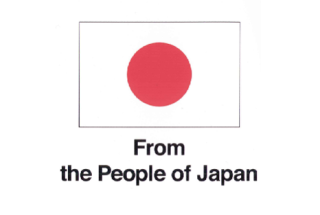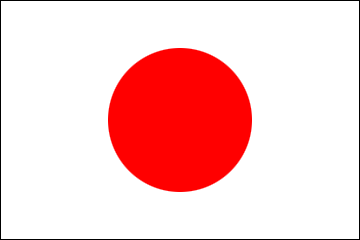Economic Cooperation

Economic Cooperation
1. What is ODA?
A variety of organizations and groups, including governments as well as international organizations, non-governmental organizations (NGOs), and private companies, carry out economic cooperation to support socioeconomic development in recipient countries. The funds and technology that governments provide to recipient countries are called "Official Development Assistance (ODA)".
2. Outlook of Japan's ODA
Japan was once an aid recipient country from the international community during a difficult period. It has been more than 40 years since Japan started its economic cooperation to developing countries by joining Colombo Plan in 1954. Japan has become one of the largest donor countries in the world and is providing its ODA to more than 150 developing countries and regions. Japan’s ODA is classified into two types:
(1) Bilateral assistance
(2) Financial subscriptions and contributions to international organizations ( multilateral assistance).
Bilateral assistance include grants, loans and technical cooperation and is provided to 6 Caribbean countries to which the Embassy is accredited*. Additionally, Japan is also implementing many regional projects together with CARICOM. In principle, the type of bilateral assistance program differs in each country based on the GNI/per capita.
Link for Detailed Information:
Japan's ODA white paper: http://www.mofa.go.jp/policy/oda/white/index.html
ODA Policy (link to ODA website of MOFA Japan): http://www.mofa.go.jp/policy/oda/
 3. Introduction of each scheme of Japan's ODA
3. Introduction of each scheme of Japan's ODA
(1) Grant Aid
Grant Aid is aimed at contributing to the social and economic development of developing countries. The major targets of Japan's Grant Aid are projects in the fields of basic human needs (agriculture, medical and health care, public welfare and the environment), human resource development (education, research, training), and basic economic infrastructure.
(2) Grant Assistance for Grassroots Human Security Projects (GGP)
The Japanese Government offers financial assistance for development projects designed to meet the diverse needs of developing countries. Known as Grant Assistance for Grassroots Human Security Projects (GGP) or Kusanone, this scheme supports projects proposed by bodies such as NGOs, schools, hospitals and local government authorities. The GGP has acquired an excellent reputation for providing flexible and timely support to development projects at the grassroots level.
APPLICATIONS NOW OPEN FOR FY2026
Eligible countries (2026):
Grenada , Guyana , St. Lucia , St. Vincent and the Grenadines , Suriname
Download Documents:
GGP Brochure : Grant Assistance for Grass-Roots Human Security Projects
GGP Points to Remember : JAPAN'S GRANT ASSISTANCE FOR GRASSROOTS HUMAN SECURITY PROJECTS (GGP/ KUSANONE)
GGP Application Form : APPLICATION FORM FOR JAPAN'S GRANT ASSISTANCE FOR GRASSROOTS HUMAN SECURITY PROJECTS (GGP/ KUSANONE)
DEADLINE: December 20, 2025
(a) Objectives
GGP provides financial assistance to NGOs, hospitals, schools, and other nonprofit associations to help implement their development projects.
The availability of GGP funding in each eligible country provides Japanese ODA with a new means of cooperation that has a direct impact on the well-being of grassroots communities.
(b) Eligible Recipients
Any type of nonprofit organization is eligible to be a GGP recipient. The only requirement is that it be a nonprofit organization implementing development projects at the grassroots level in eligible countries. The following are examples of potential recipients: international or local NGOs (of any nationality, except those eligible for the Grant Assistance for Japanese NGOs), local authorities, hospitals, primary schools, and other nonprofit associations.
(c) Project Areas
GGP mainly targets projects that aim to meet Basic Human Needs(BHN) and projects that are highly beneficial at the grassroots level and require timely support. Project areas include but are not limited to:
*Poverty Alleviation
*Public Welfare
*Environmental Protection and Disaster Risk Reduction and Management
(e.g. Climate Change Adaptation and Mitigation, 3 R's (reduce, reuse and recycle)
and Waste Management)
*Agriculture
*Primary Health Care
*Education
(d) Available Funds
GGP funds are provided to the recipient organization after an examination and evaluation of each application by the Japanese Government on an annual project-by-project basis. The grant amount per project is approximately 5 million yen (approximately US$35,000). Prospective applicants should note that the following budget items cannot be financed: consumables (except in case of emergency relief or for humanitarian needs), running and maintenance costs of facilities and equipment, and administrative costs of the recipient organization.
(e) How to Apply
If your organization satisfies the conditions described above and you want to receive GGP funds to implement a development project, you should submit a completed application form to the Japanese Embassy at [ggp.emb-jpn-tt@po.mofa.go.jp]. The application form must be accompanied by a detailed budget for the project, a map showing the project site, estimates for the goods and services that will be purchased by the grant (from three different suppliers), a brochure about your organization, as well as financial records (for the past 2 years).
As we may need to ask you for additional information, it is essential that your organization provide a point of contact.
Email Address: ggp.emb-jpn-tt@po.mofa.go.jp
(f) Approval Procedures
The Japanese Government cannot support every project that is submitted. Funds are provided to appropriate projects after detailed examination and evaluation by the Japanese Government. After a Japanese Embassy receives the application form and accompanying documents from the applying organization, the Embassy will take the following steps:
* Examination of the project
* Site visit
* Grant Contract
* Disbursement of funds
* Implementation of project
* Changes from the original plan - subject to case-by-case approval from Japanese Government
* Reports
* Auditing
(3) Technical Assistance
Technical cooperation projects are one of Japan’s main Official Development Assistance (ODA) overseas activities. They are results-oriented, with Japan and a developing country pooling their knowledge, experience, and skills to resolve specific issues within a certain timeframe. The projects may involve the dispatching of experts from Japan to provide technical support, invitation of personnel from developing countries for training, or the provision of necessary equipment. After receiving a request from a developing country, Japan International Cooperation Agency (JICA) adopts various cooperation approaches (cooperation tools). In order to achieve the objective of promoting development, JICA determines how to combine these cooperation tools, how long they will be implemented, and how to time them for the most effective and efficient results. Technical cooperation projects are implemented according to the plan made through consultations with the recipient country. In order to address each problem so that a broad range of needs of developing countries can be met effectively and efficiently, cooperation plans are tailor-made and implemented jointly with the recipient country.
(a) Dispatch of Experts: The Expert Dispatch Program’s key objective is to transfer and disseminate technical knowledge and skills appropriate to the needs of partner countries.
(b) Acceptance of Technical Training Participants: The Acceptance of Technical Training Participants Program involves the transfer of knowledge and technology required by respective countries through the training of key administrators, technicians and researchers in developing countries and regions. This is the most fundamental human development program implemented by JICA. The program has grown steadily not only in scale but also in terms of content since its launch in 1954. JICA has been working on training related to global issues, such as the environment and HIV/AIDS, and new issues like support for democratization and transitions to market economies, in addition to basic development fields such as administration, public works, agriculture, forestry and fisheries, education, health and medical care, mining, and industry.
(c) Japan Overseas Cooperation Volunteers (JOCV): JOCV program assists in response to requests from developing countries with the overseas activities of people who wish to cooperate in the economic and social development of developing countries. JOCVs generally spend two years in developing countries, living and working with the local people while taking part in cooperative activities. Cooperation is provided in seven fields: agriculture, forestry and fisheries, processing, maintenance, civil engineering, health and hygiene, education and culture, and sport.
(d) Preparatory Survey: Preparatory Survey to assistance project will be conducted to ensure flexibility and speed at the project preparation stage and to achieve mutually reinforcing effects among the aid schemes. Such surveys will enable JICA to conduct both project identification and formulation in a seamless manner, thereby significantly shortening the preparation period leading to actual implementation.
(4) Emergency Grant Aid
The Government of Japan provides Emergency Grant Aid for the governments of affected countries or international and other organizations (including Red Cross Societies), with a view to providing urgent support for refugees, internally displaced persons (IDP’s), or people affected by overseas natural disasters and/or conflicts.
A distinctive feature of the Grant is that it should respond to urgent needs. Therefore, the Grant is implemented in a speedy process different from those of other Grant schemes. Specifically, in response to requests from affected governments or international and other organizations, and based on the information gathered at diplomatic missions, the Ministry of Foreign Affairs decides the amount and details of Emergency Grant Aid. Then, the Ministry of Foreign Affairs reports the decision to the Cabinet Meeting. The diplomatic mission of the Government of Japan exchanges notes verbale with the affected countries or international and other organizations, and the Government of Japan contributes the grant to relevant organizations.
4. (ODA) Consultation Desk on Fraud and Corruption
In order to prevent fraud and corruption in Official Development Assistance (ODA), we provide a consultation service for information related to fraud and corruption in Japan’s ODA projects.
Please visit (ODA)Consultation Desk on Fraud and Corruption for the detail.
For details of assistance to each of the countries below and past assistance projects, please click the following links:
Grenada
Guyana
St. Lucia
St. Vincent and the Grenadines
Suriname
Trinidad and Tobago
FOR FURTHER INFORMATION:
Link to JICA HP Latin America: jica.go.jp/english/countries/america or
Embassy of Japan in Trinidad and Tobago
TEL : 1-868-628-5991
E-mail : embassyofjapan@po.mofa.go.jp
Overview | Grenada | Guyana | St. Lucia | St. Vincent and the Grenadines | Suriname | Trinidad and Tobago
